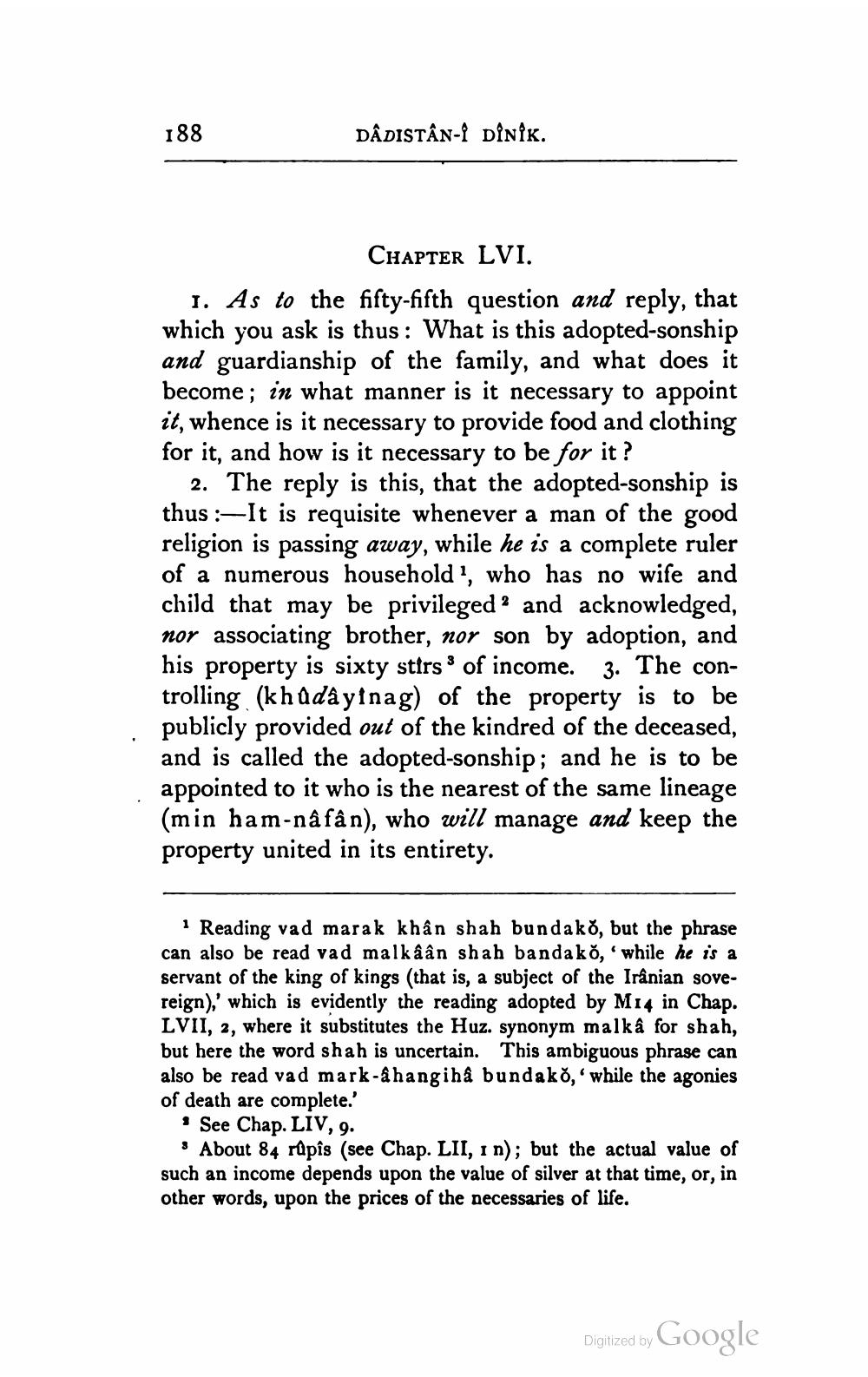________________
188
DÂDISTÂN-I DİNİK.
CHAPTER LVI.
1. As to the fifty-fifth question and reply, that which you ask is thus: What is this adopted-sonship and guardianship of the family, and what does it become; in what manner is it necessary to appoint it, whence is it necessary to provide food and clothing for it, and how is it necessary to be for it?
2
2. The reply is this, that the adopted-sonship is thus-It is requisite whenever a man of the good religion is passing away, while he is a complete ruler of a numerous household', who has no wife and child that may be privileged and acknowledged, nor associating brother, nor son by adoption, and his property is sixty sttrs of income. 3. The controlling (khudayinag) of the property is to be publicly provided out of the kindred of the deceased, and is called the adopted-sonship; and he is to be appointed to it who is the nearest of the same lineage (min ham-nâfân), who will manage and keep the property united in its entirety.
1 Reading vad marak khân shah bundako, but the phrase can also be read vad malkâân shah bandako, while he is a servant of the king of kings (that is, a subject of the Iranian sovereign),' which is evidently the reading adopted by M14 in Chap. LVII, 2, where it substitutes the Huz. synonym malkâ for shah, but here the word shah is uncertain. This ambiguous phrase can also be read vad mark-âhangihâ bundakŏ,' while the agonies of death are complete.'
See Chap. LIV, 9.
I
About 84 rupîs (see Chap. LII, 1 n); but the actual value of such an income depends upon the value of silver at that time, or, in other words, upon the prices of the necessaries of life.
Digitized by
Google




